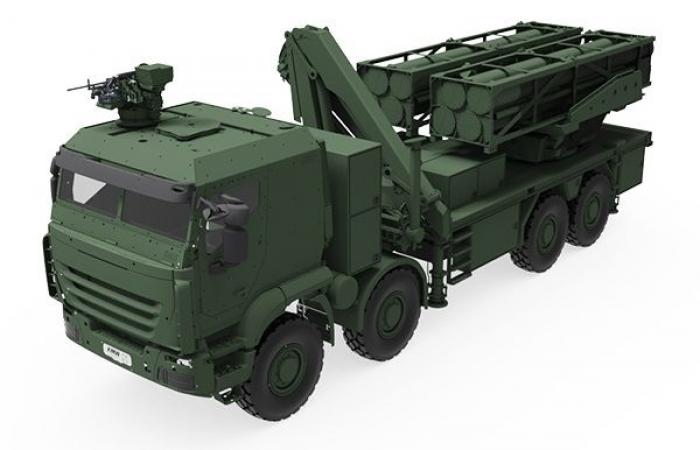Currently, the Greek army's deep strike capabilities rely on 108 multiple rocket launchers [LRM] RM-70 of Czechoslovak design, acquired second-hand after the disappearance of the German Democratic Republic [RDA]as well as 36 M270 MLRS of American origin. In 2021, there was talk of modernizing these two artillery systems.
However, the cost of upgrading the M270 MLRS has soared. Indeed, in 2023, it was valued at 1.81 billion euros for twenty-four copies. Then, this ambition was subsequently revised downwards, with a forecast budget of 500 million euros to modernize only twelve examples.
Hence the decision of the Greek army to abandon this project, in favor of purchasing 36 new PULS rocket launchers [Multi-Purpose Universal Launching System ou système de lancement universel polyvalent] with the Israeli group Elbit System. Mentioned a few days ago by the Greek specialist press, this project was confirmed by two sources close to the matter to the Reuters agency. The cost of this acquisition would be between 600 and 700 million euros.
For the moment, negotiations with Elbit Systems have not yet been finalized. According to OnAlert, there is talk for Athens of obtaining the installation of a production line dedicated to these artillery systems in Greece. Once it has been reached, the agreement will have to be approved by the Greek Parliament, probably during the first quarter of 2025.
According to one of the officials cited by Reuters, these LRMs should be deployed along the border with Turkey and on the islands of the Aegean Sea.
As a reminder, the PULS system has a range of 35 to 300 km. It is compatible with AccuLAR-122 type rockets and missiles [122 mm, 35 km]AccuLAR-160 [160 mm, 40 km]EXTRA [306 mm, 150 km] et Predator Hawk [370 mm, 300 km]. He was selected by Denmark, Germany, the Netherlands and Spain. In November, the Israeli group announced that it had obtained a new contract with a European country that it did not mention. The order in question concerns the delivery of an unspecified number of PULS and Hermes 900 drones, for a total amount of $335 million.
In any case, the choice of the Greek army illustrates the very good relations between Greece and Israel, the two countries having common interests in the Eastern Mediterranean, in particular in the field of energy, with the project of EastMed gas pipeline, which Turkey is also seeking to torpedo… In recent years, they have signed military agreements relating in particular to the acquisition [par crédit-bail] MALE drone [Moyenne Altitude Longue Endurance] Heron TP for the Hellenic Air Force, Greek pilot training and joint production of the “Themistocles” corvette class.
Additionally, in November, Greece announced plans to acquire three Israeli systems, namely the “David's Sling”, the Barak MX and the SPYDER MR. [Surface-to-air Python and Derby]to develop multi-layer air defense, via an investment of 2 billion euros.






